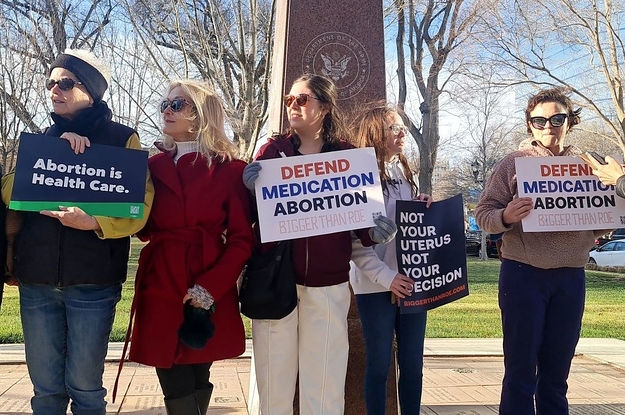In a recent federal court case, a judge named Reed O’Connor in Texas ruled in favor of an anti-abortion group seeking to ban the abortion pill, mifepristone. This decision has sparked public outrage and raised concerns about the future of reproductive rights in the United States. O’Connor’s ruling goes against established scientific evidence that shows mifepristone is safe and effective, with minimal side effects.
The case was kept under wraps by Judge O’Connor, who took extraordinary measures to delay the announcement of the hearing. However, the news eventually leaked, giving the public warning of the upcoming proceedings. During the hearing, O’Connor appeared open to the anti-abortion group’s claims that mifepristone could be harmful or deadly, and that the FDA approval process had been rushed. However, scientific evidence contradicts these claims, with FDA data showing that only a small percentage of mifepristone users experience major side effects.
Ordering a ban on an FDA-approved drug like mifepristone would be an unprecedented decision, given its widespread use for over 20 years. Even the anti-abortion group’s attorney could not cite any previous rulings that had taken a drug off the market. The fact that this case was not thrown out from the beginning suggests that the courts are entering uncharted waters when it comes to reproductive rights.
Ahead of the arguments in the Texas case, Democratic-led states sued the FDA in late February, asking the court to remove additional restrictions on mifepristone. These states also sought a ruling to prevent the agency from taking any action to remove or reduce the availability of the drug. In a separate ruling, District Judge Thomas Owen Rice granted a preliminary injunction against the FDA, finding that it was in the public interest. However, he did not issue a nationwide injunction due to the ongoing litigation in Texas.
The impact of Judge O’Connor’s ruling could be significant if it is allowed to take effect. Even in states where abortion is legal, using an unapproved drug like mifepristone could have legal repercussions. This decision threatens to limit access to safe and effective abortion care for women across the country.
The future of reproductive rights in the United States remains uncertain as these conflicting rulings make their way through the court system. It is unclear how the Supreme Court will resolve these differences, but the implications of Judge O’Connor’s ruling are far-reaching. The fight for reproductive rights continues, as advocates work to ensure that women have access to safe and legal abortion care.









